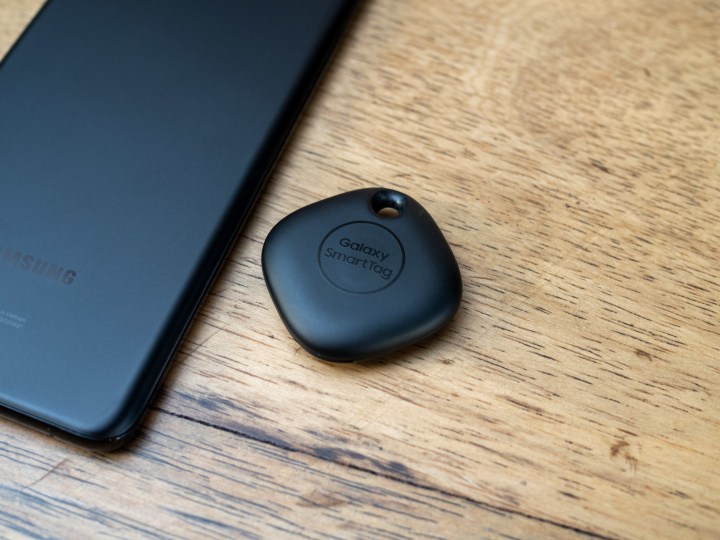Apple AirTags have been one of the hilarious “will they, won’t they” products of the last couple of years. While Apple waits things out to get the tech just right, it just got scooped by Samsung, which released its own $30 Galaxy SmartTag accessory alongside the Galaxy S21.
The Galaxy SmartTag is exactly what you’d expect: A small plastic disc with a hole in it that you can attach to anything you want to keep track of. The tracker has a tiny battery (which lasts for “months”) and Bluetooth LE, and at any time you can open up SmartThings Find on your phone to figure out where it is. SmartThings Find will find your other Samsung phones, tablets, and headphones.

Saying that Samsung scooped Apple on AirTag is a bit misleading, I admit, as the SmartTag is wholly unremarkable. This is a basic Bluetooth tracker not unlike the Tile or several other names out there — its only “advantage” is being built into Samsung’s SmartThings ecosystem. This first SmartTag only uses Bluetooth, so it can’t provide you with any directionality or proximity information — just a “hot or cold” indicating that the tag is somewhere nearby.
At its Galaxy S21 launch event Samsung also announced that it will have a $40 SmartTag+ at some point later this year that uses UWB, or ultra-wideband, as is rumored for Apple’s AirTags. UWB gives you precise direction and proximity information, provided you have a phone that has UWB — conveniently, the Galaxy S21+ and S21 Ultra do.
Were people really buying these Bluetooth trackers before? Samsung thinks so.
Everyone who pre-orders a Galaxy S21 in the first two weeks will get a free SmartTag, which will immediately seed the market — although it’s unclear how many will actually care to try it out.
This sort of product has been around for several years, and anecdotally I just don’t see them being used. Tile is probably the best-known name in the business, and while it’s still around, I don’t see people using them or espousing their usefulness like they did in the first year on the market.
The SmartTag has the benefit of coming from a massive name like Samsung, and that’ll win it some sales. But the fact that this is simply the exact same product that we’ve had access to for several years, with a different brand that’s locked into Samsung’s ecosystem, I don’t see how this is going to take off.
Editors' Recommendations
- Something odd is happening with Samsung’s two new budget phones
- Samsung has a new (and cheaper) way to buy the Galaxy S23
- Samsung just launched a $400 phone in the U.S., and it looks great
- I have Samsung’s newest cheap phone, and I’m a bit worried
- Samsung’s Galaxy AI is about to get a lot more useful



